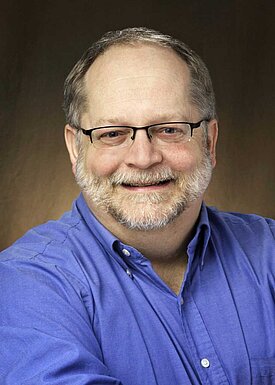John K. Cox

Professor
PhD 1995, Indiana University
Telephone: 701-231-7709
422C Minard Hall
What made you want to be a professional historian?
I came to history through a love of other cultures, foreign languages, and adventurous travel. Understanding other societies, in particular those of Europe, became a great personal motivation for me after my first trips abroad when I was 11 years old. This was during the Cold War, and I wanted to understand what was behind the headlines, but I also wanted to meet all different kinds of people and explore all kinds of unfamiliar ideas. Early in my educational life, I had the opportunity to learn German, and then Russian, and then Hungarian, and by the time I was 22 I had zeroed in on a region I love: Eastern Europe.
At first my career plans involved the Foreign Service (U.S. Department of State), but when I discovered the academic life—and really big libraries—in graduate school at Indiana University, I decided I wanted to study and read and write and teach, forever and ever! Around 1990 I was actively exploring getting a PhD in political science, literature, linguistics, journalism, and history. History won. It won because it allows me to have a very rich intellectual life in a scholarly and personal space where many different threads of human activity come together. Now I love the mental architecture of history, too. History is not a curiosity cabinet or a random set of factoids, but rather an attitude about inquiry, change over time, and a constant wrestling with context and contingency.
I love history, in short, for two different reasons: it encourages us to think rigorously and creatively about what happened and why, and it also allows us to explore, seriously and broadly and deliciously, other societies and cultures.
What makes you excited about working with students?
Above all, I love the energy of a classroom. Vigorous and energetic and multi-faceted teaching is a way of working with students that is truly about making connections with other people, and then making connections together with the rest of the world. Teaching is a lot more than just testing and technology. It's about community, learning together by asking hard questions, and also creating meaning together. Ultimately it's also about developing tools for verifying facts, and then using them as building blocks for effective communication and reasoned conversation about causes and effects of things.
In addition, I have to say that it is also a very rewarding feeling to be a resource person for students in their concrete explorations of international events and non-US cultures. I love encouraging students to study abroad, learn foreign languages, and make connections with political systems, art and literature, jobs, cuisine, architecture, and above all people and their ideas in other countries.
Dr. Cox's current curriculum vitae can be found here.
Courses at NDSU | |
The Ottoman Empire Modern Russia | |
Historiography | |
Europe Since 1914 | |
Europe, 1815-1914 | |
Theories of Nationalism | |
Eastern Europe Since Napoleon | |
| Western Civilization, pt. II | |
Books Published:The History of Serbia (Westport, CT: Greenwood, 2002)
|


